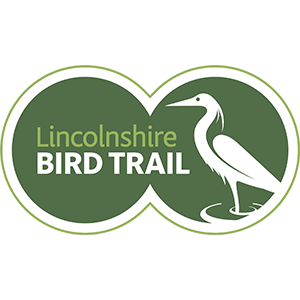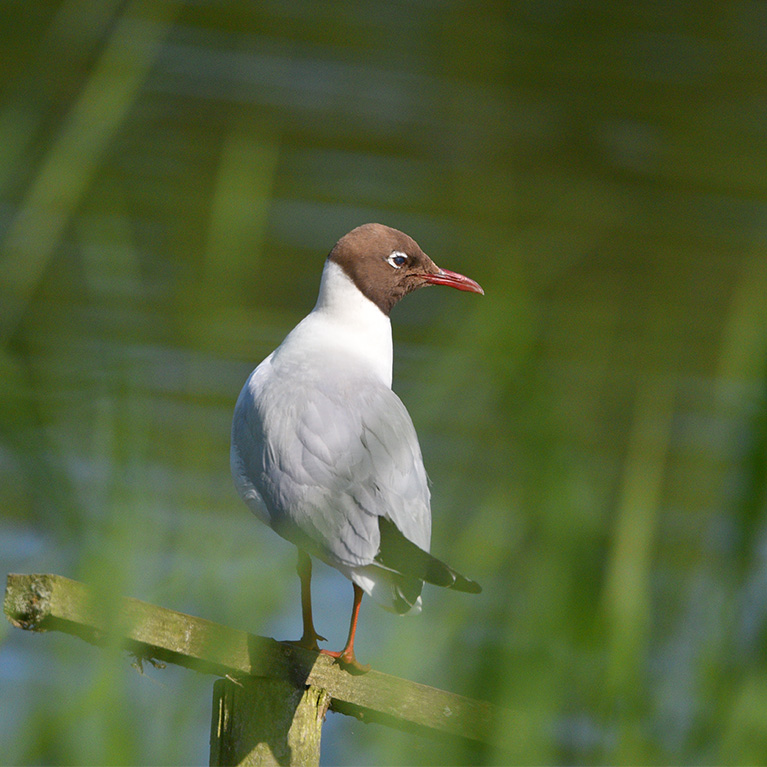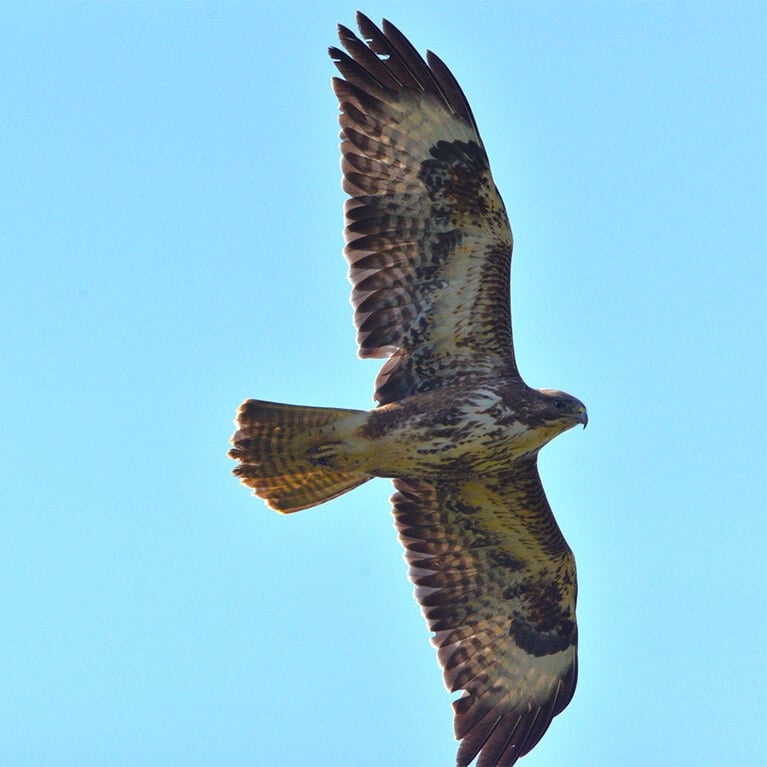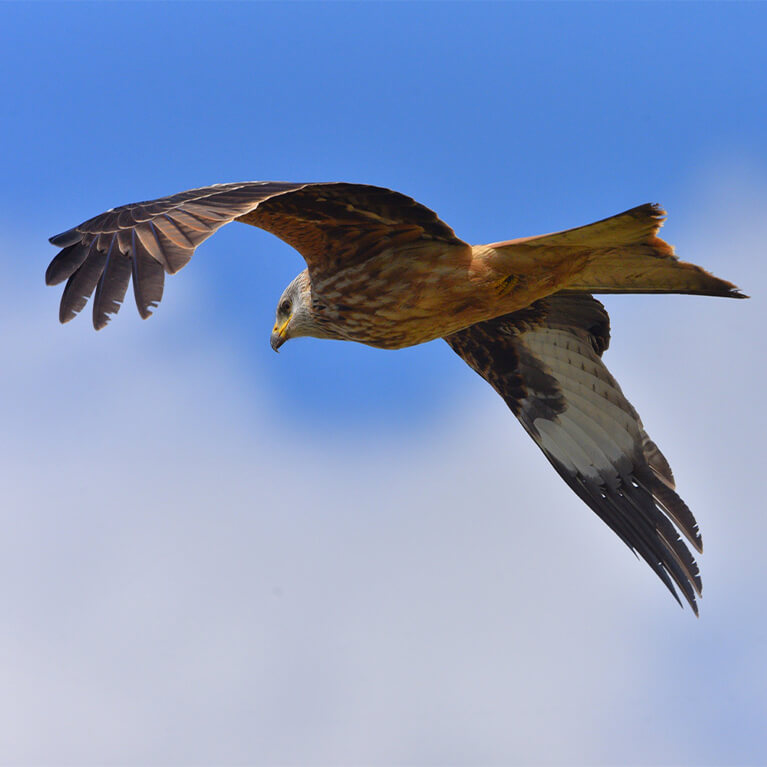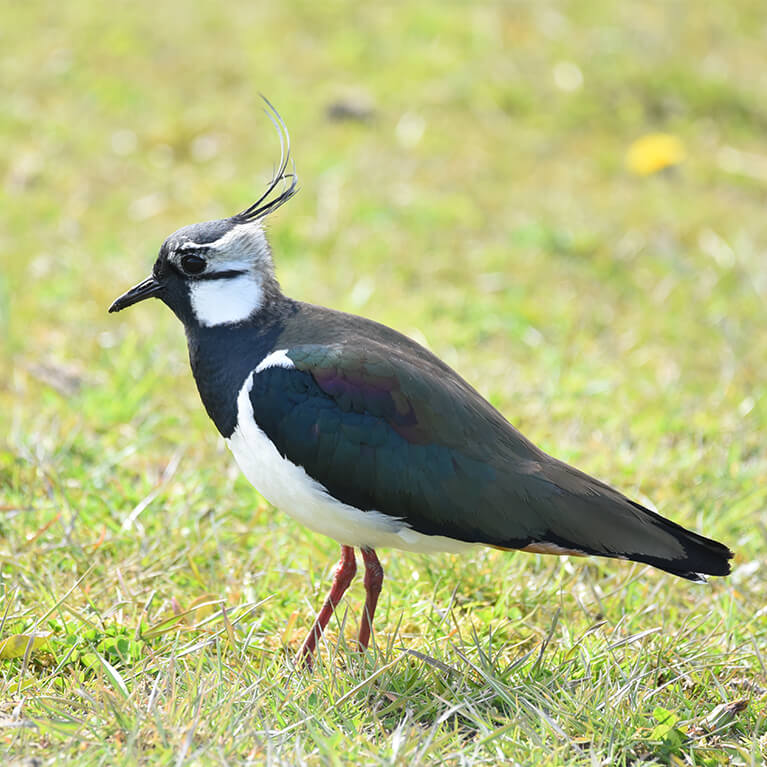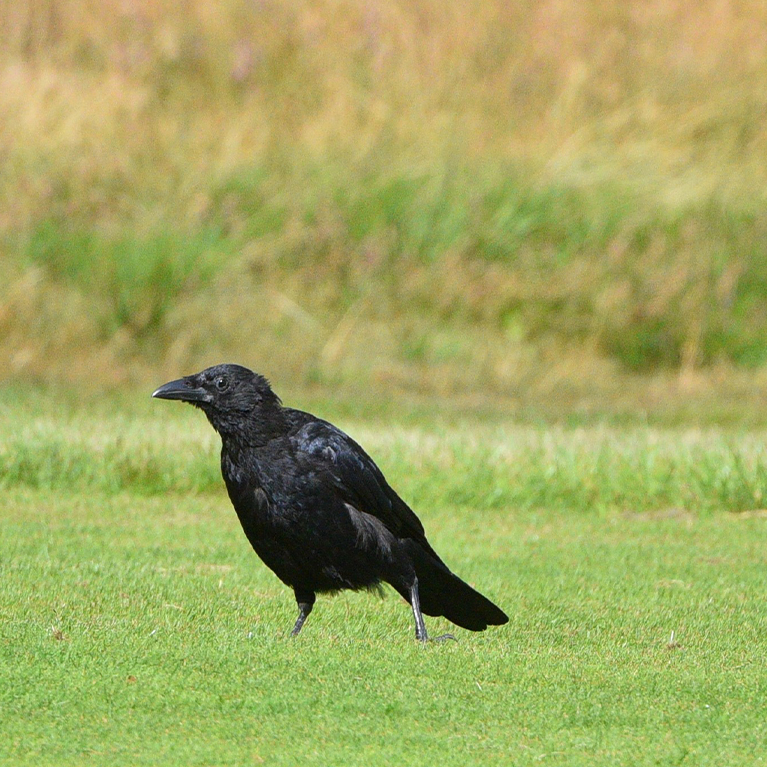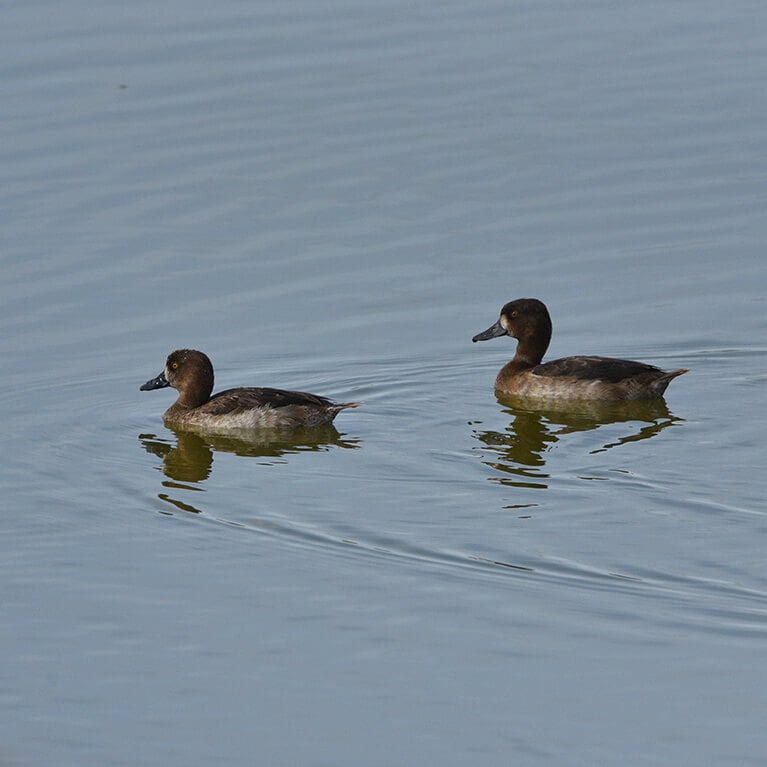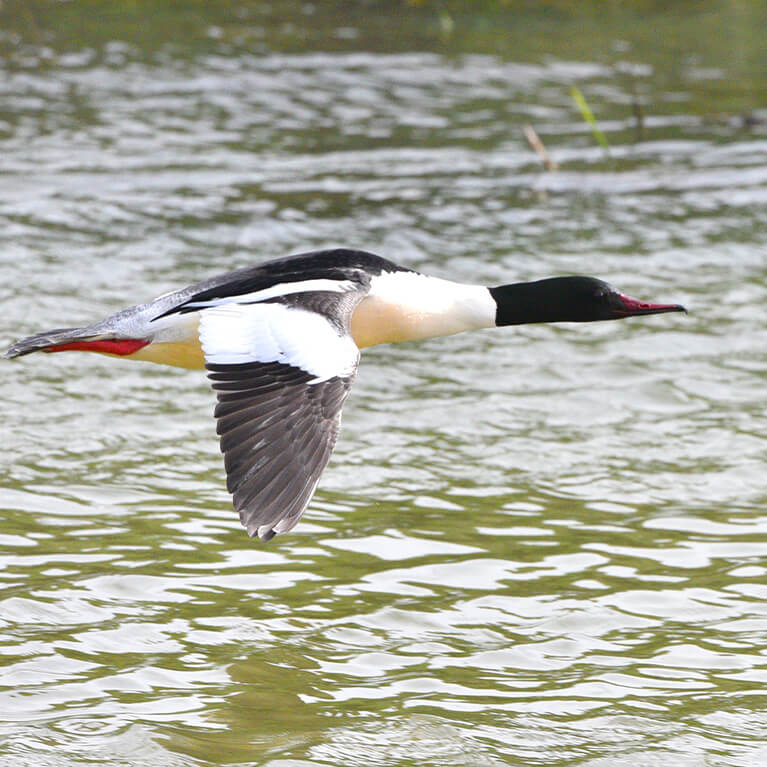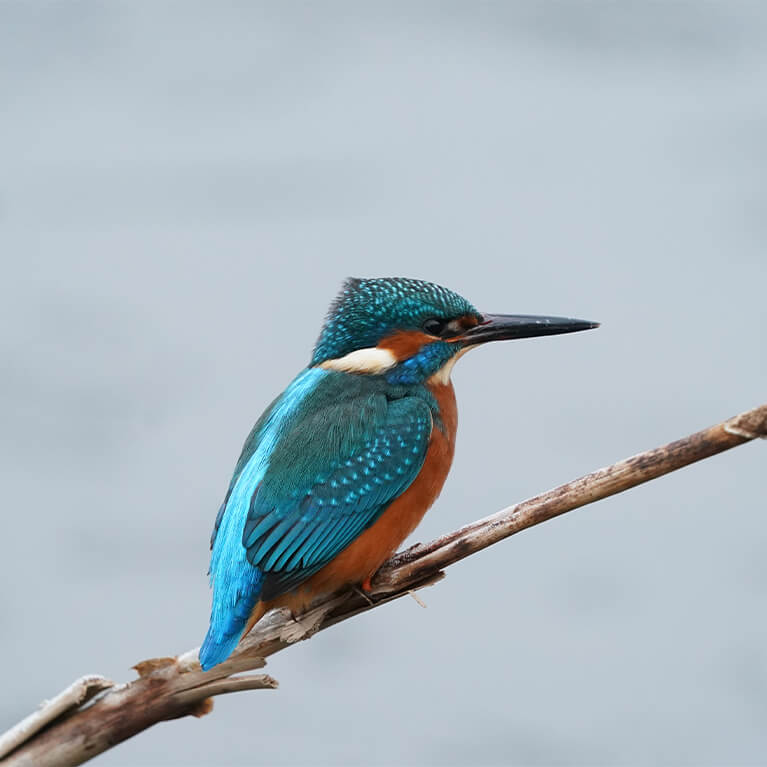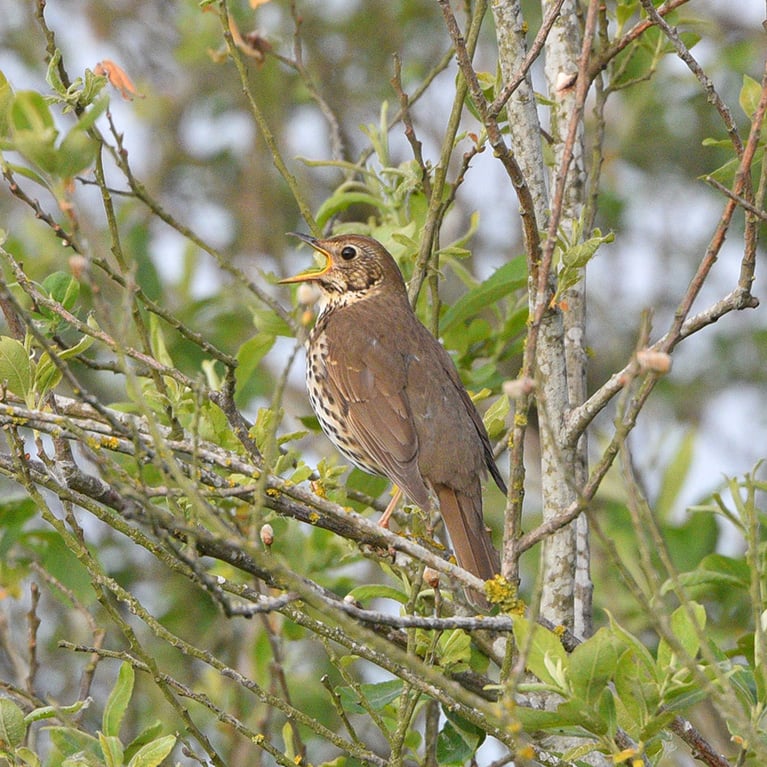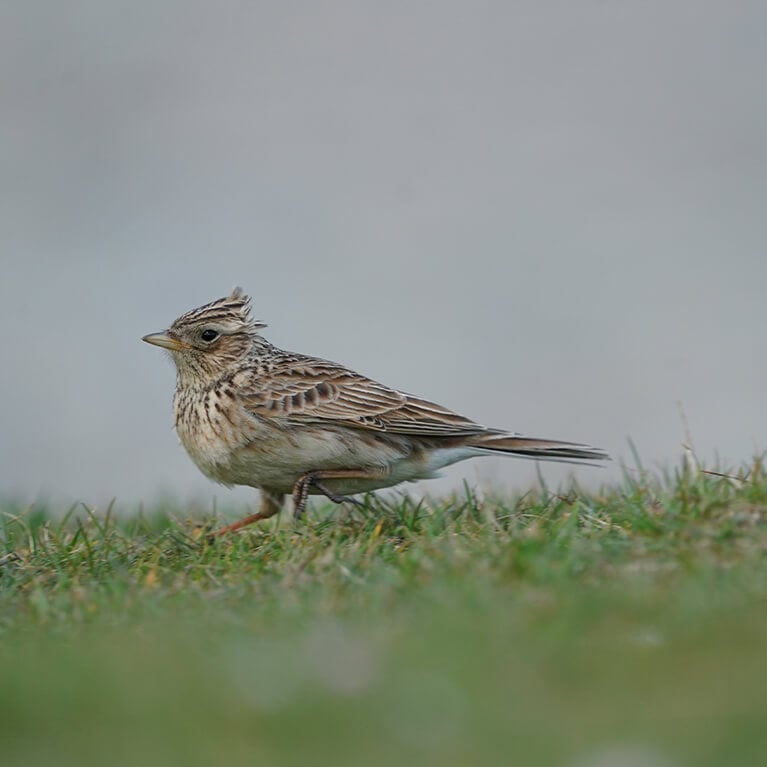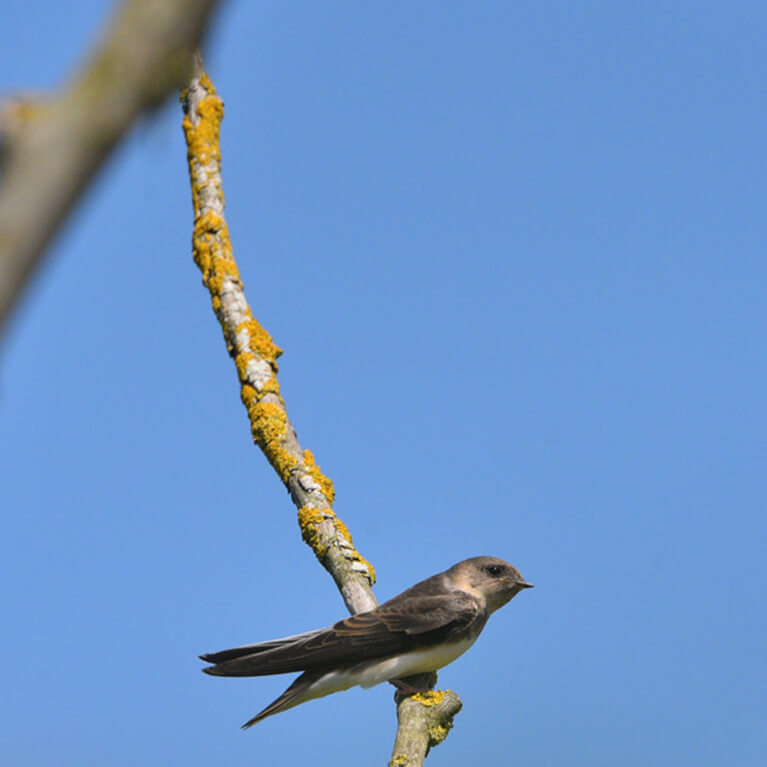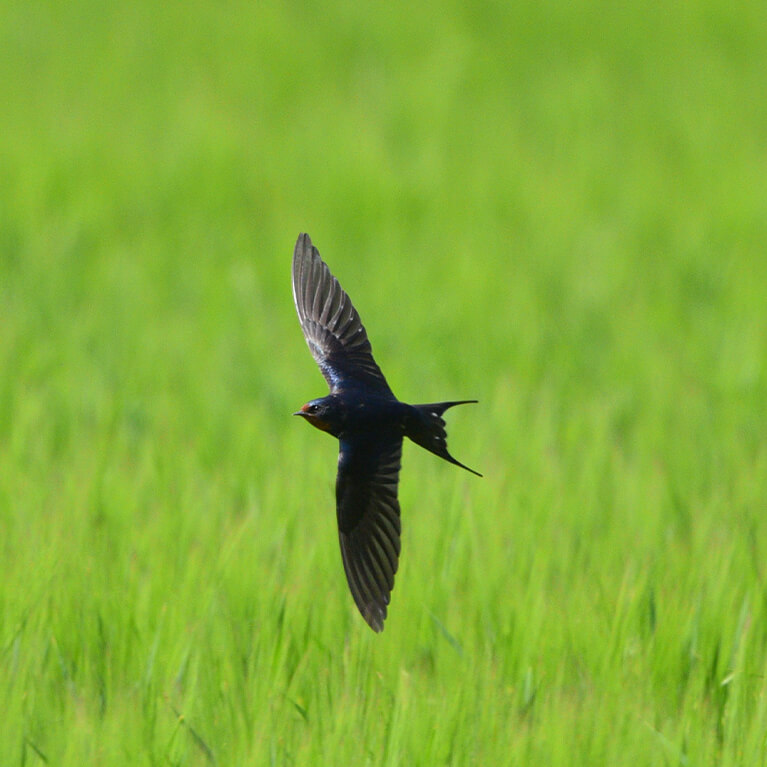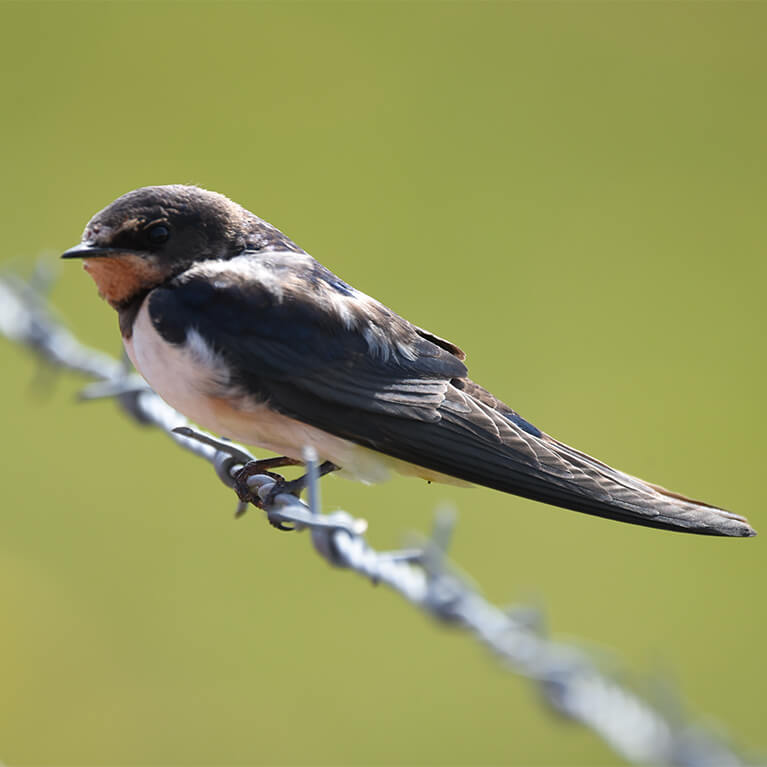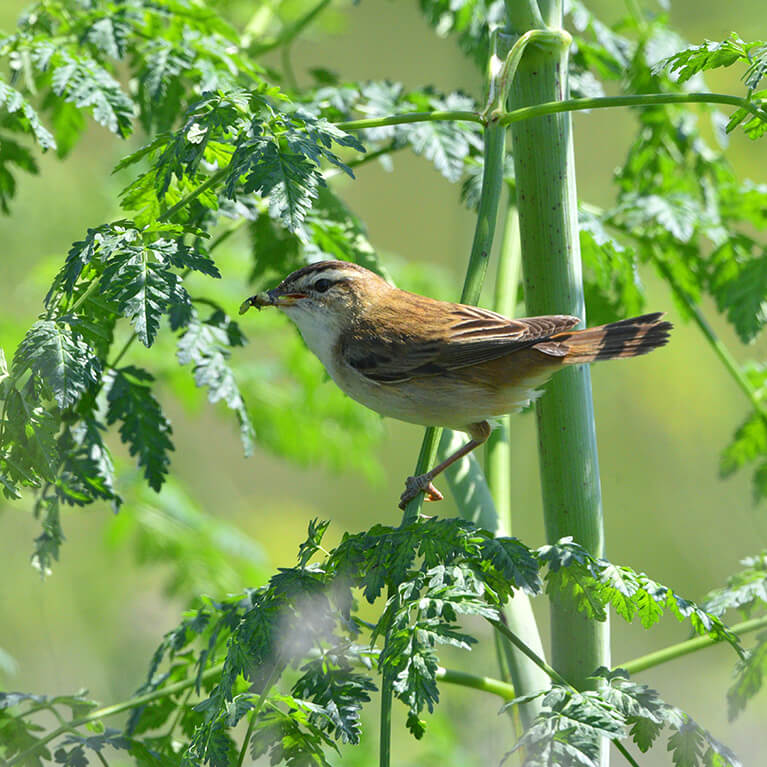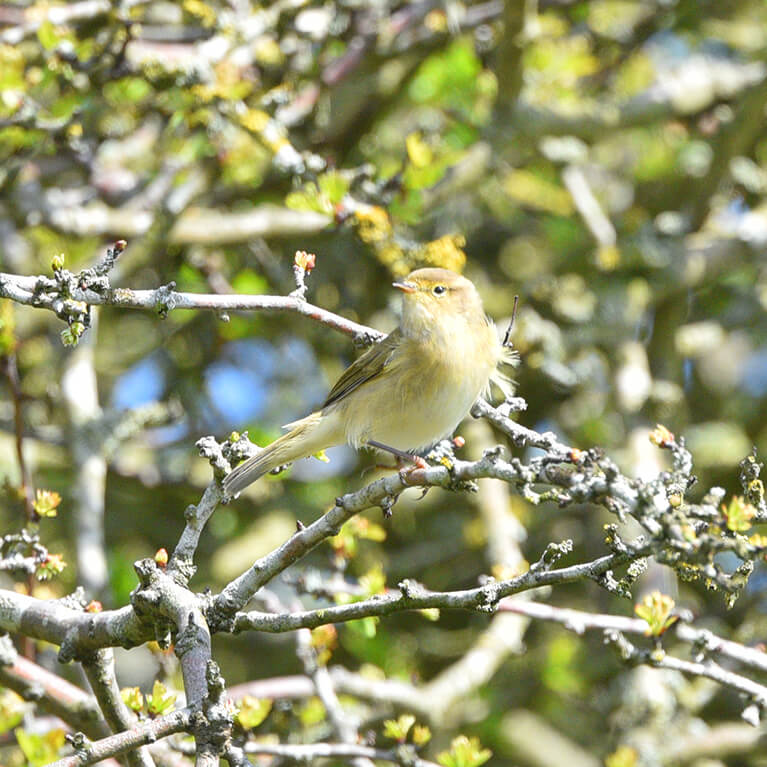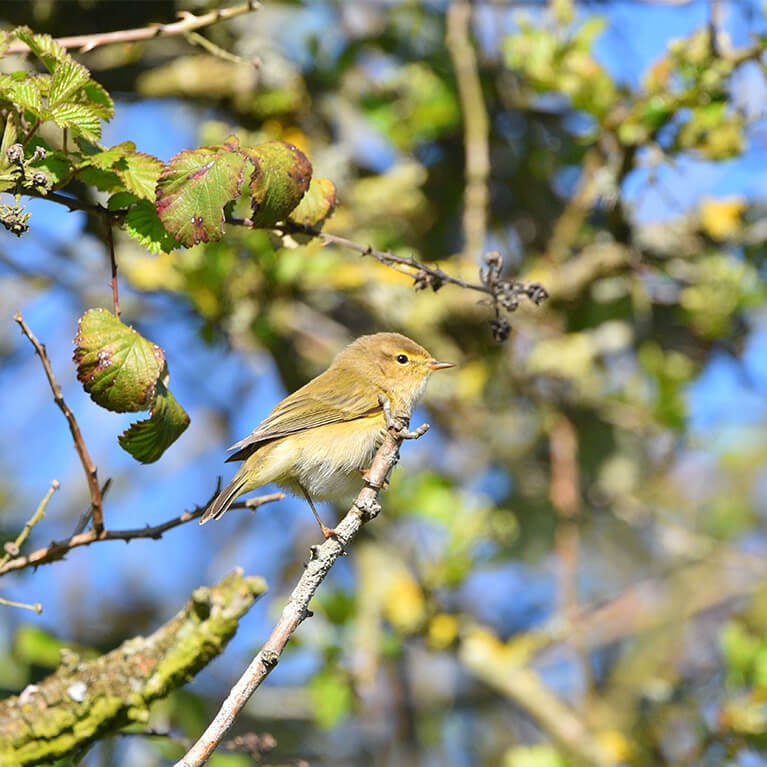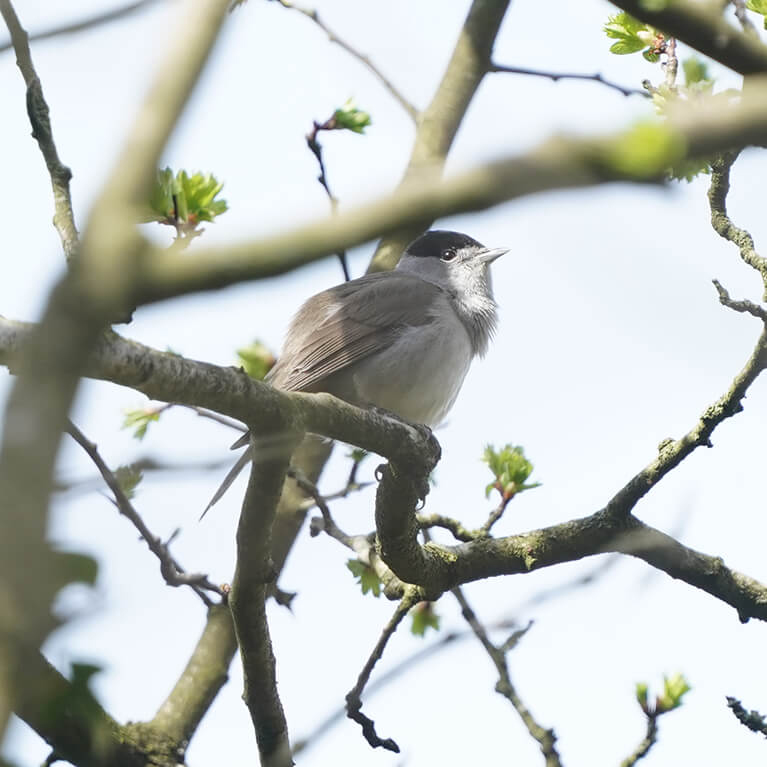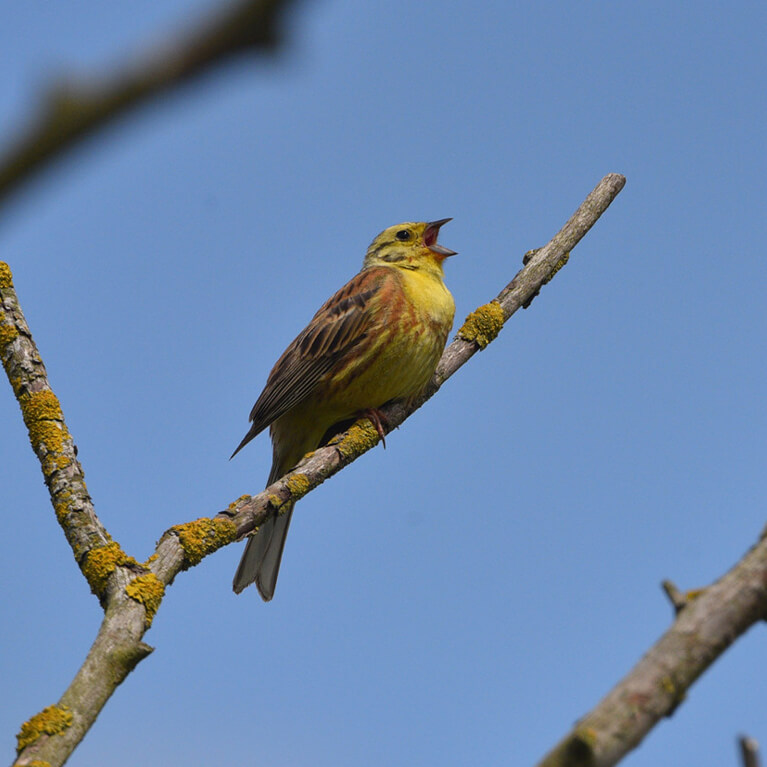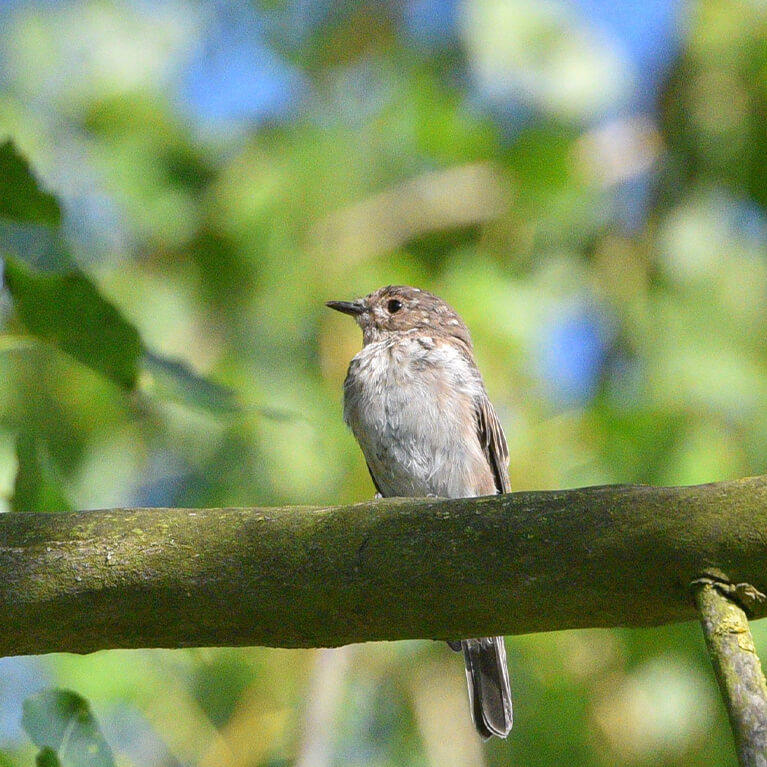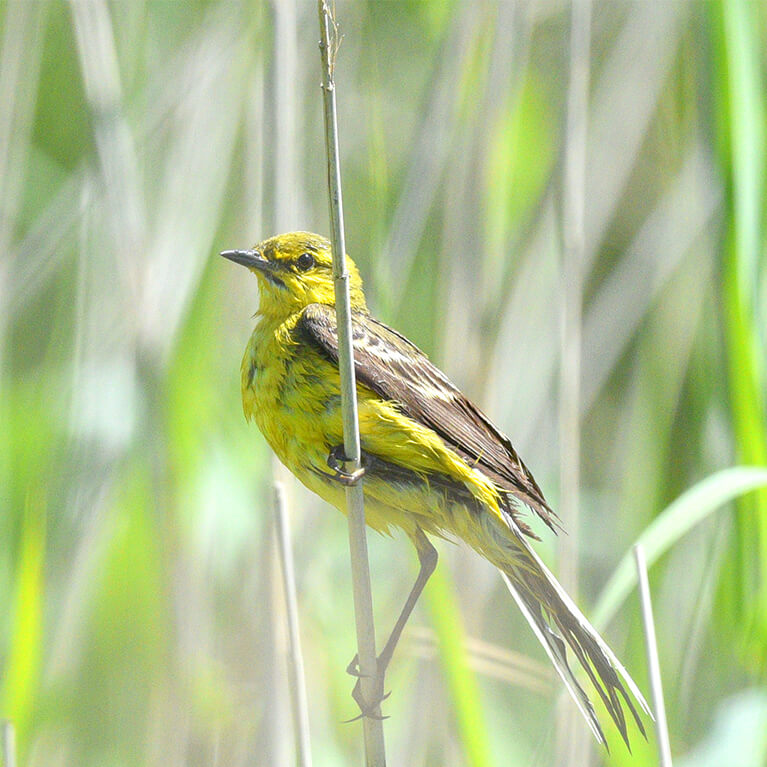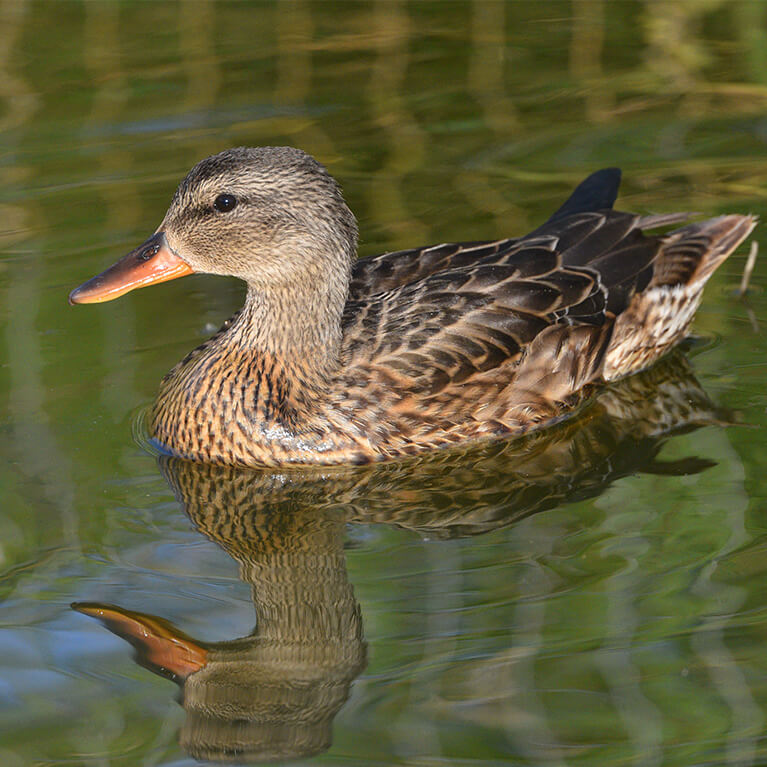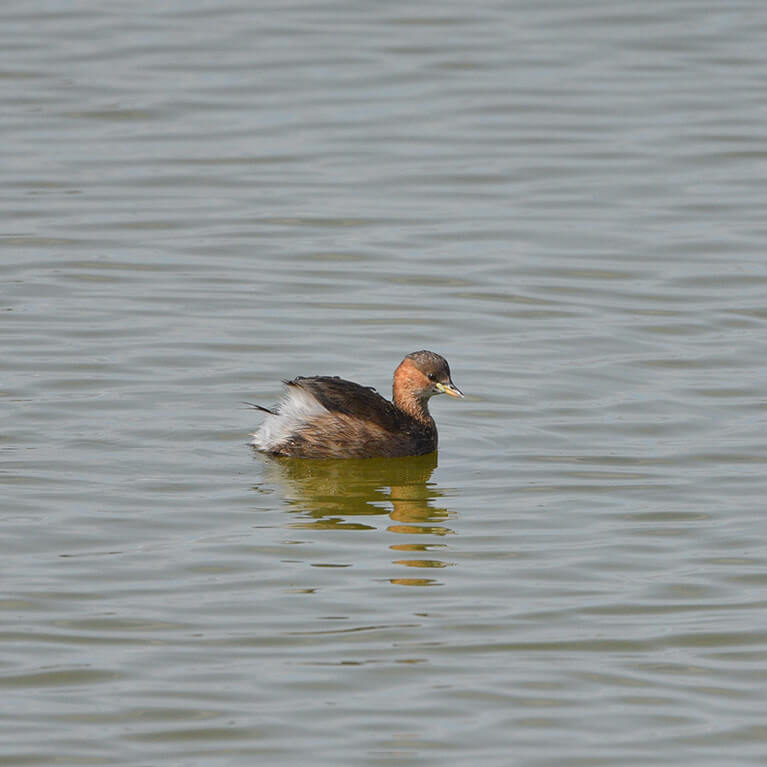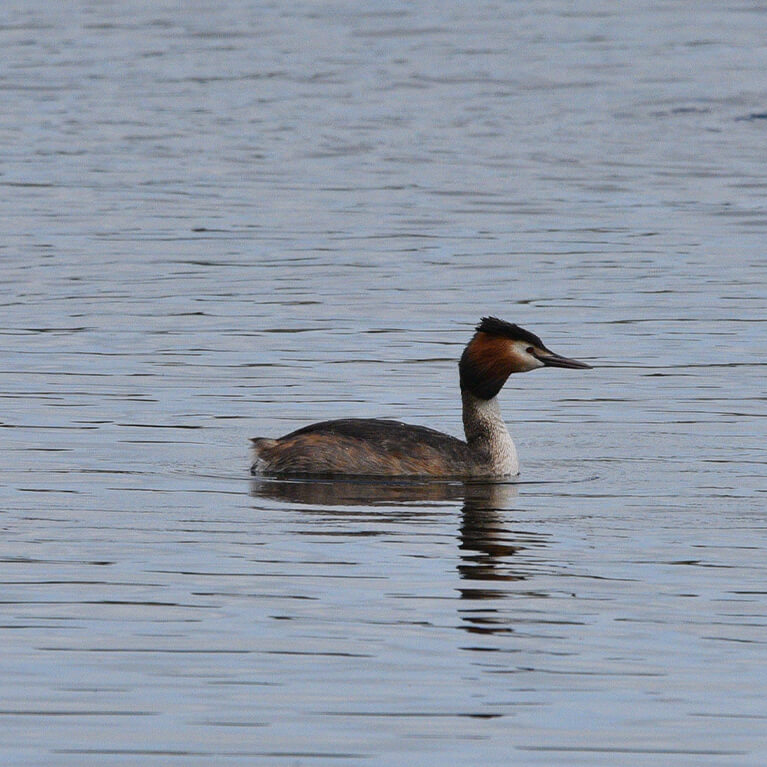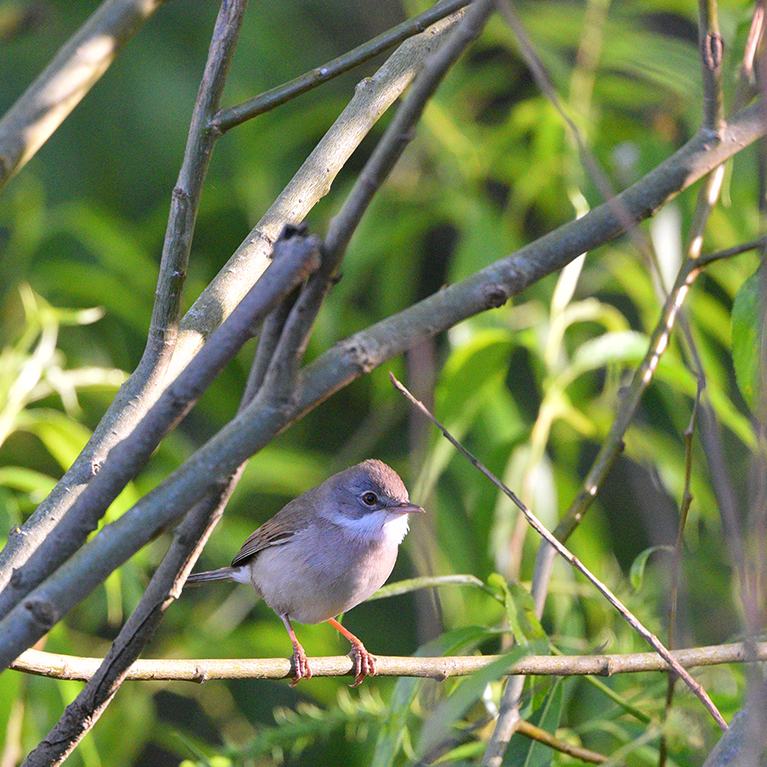The Viking Way runs alongside Biscathorpe lake and a series of fields which are in places sand or clay providing a contrast to the loftier rolling chalk wold farmland to the north and east. Around one mile to the west, Belmont Tower provides TV signals to much of the county and also provides a nest site for the most easily viewed Raven nest in the county. Ravens have only returned to the Wolds in the last ten years having been extirpated several hundred years ago.
what species and habitats can you find?
The Upper Bain Valley is a chalk stream that cuts through from the Chalk Wolds into the lower clay “Semi-Wolds” of the western section of the Lincolnshire Wolds. Previous glaciations left large deposits of sand and gravel in the Biscathorpe area which were worked up until the last 40 years or so and have now flooded to form interesting wetlands along the River Bain. These are one of the last places in the Wolds where sand martins retain a foothold in a breeding colony near Biscathorpe lake over which they feed on insects from April though to August.
Autumn & Winter species
Rooks, jackdaws, black-headed gulls, common gulls, fieldfare, redwing, ravens, buzzards, red kites, lapwing, golden plover, finches, buntings, tufted ducks, goosander, kingfisher and grey wagtail.
Spring & Summer species
Skylarks, sand martins, reed, sedge warblers, willow warblers, chiffchaffs, whitethroats, blackcaps, lesser whitethroats, yellowhammers, reed buntings, finches, spotted flycatcher, ravens, yellow wagtails, gadwall, great crested, little grebe, hobby, sand martins and swallows.
useful hints and tips
To see the ravens either park up on the wide grass verge on the lane to the north of the tower or walk up the hill along the lane from Donington on Bain. Get as close to the tower as you can on the road and then look upwards to the first platform to the left of the tower. The annually growing pile of twigs forming the nest can easily be seen through binoculars. Usually from late February to early April, one adult bird will be sitting and the other will be on guard on one of the anchors at the base of the support wires, unless it’s away feeding. Listen out for the characteristic cronk, cronk call as it alerts its partner to its return. As the young grow as May proceeds, they can be seen walking around the platform and the adults visit regularly with food. The birds are in the area all year round, just listen out for that enigmatic call!
Biscathorpe Lake can be reached by walking north from Donington on Bain village along the Viking Way. Check out the mill pond and stream by the watermill as you go past. A great spot for kingfisher, grey wagtail and thrushes. It’s a beautiful walk, take your time and listen out for calls and songs.
facilities
All the facilities are in Donington on Bain.
getting here
The Bain Valley lies between Horncastle in the south and Burgh on Bain to the north which is on the A157 between Wragby and Louth. The section of interest here is the northern part between Donington on Bain and Burgh on Bain. A map and access details can be found on our Viking Way Shorts Donington on Bain page.
dog access
The area is open countryside. Please keep to rights of way and keep your dog on a lead. Do not attempt to enter the fenced area around Belmont Mast or go into the fields surrounding it.
opening times
The area can be accessed at all times.
nearby
Viking Way
The Viking Way route can be divided into 13 sections from the River Humber through Lincolnshire and Leicestershire to Rutland. Starting on the banks of the Humber the route passes through rural Lincolnshire, attractive market towns, the city of Lincoln and then on through pretty villages and along an ancient trackway to reach Oakham, in Rutland. It’s a great way to experience and discover the varied and beautiful Lincolnshire landscape.
explore the other locations along the Wolds birding trail
places to stay nearby
Make a trip of it! Enjoy a coastal getaway with a selection of places to stay close by.
Longwool Lookout at the Rookery Rural Retreats
Louth Livestock Market Motorhome Stopover
Off-the-Grid Camping at Wykeham Hall Farm
The Saddlehouse at Wykeham Hall Farm
The Stables at the Rookery Rural Retreats
Brackenborough Hall Coach House
Greetham Retreat CL Touring Site
Grimblethorpe Hall Country Cottages
Katie’s Corner at Greetham Retreat
Laura’s Loft at Greetham Retreat
Maggie’s Mews at Greetham Retreat
Rose’s Rest at Greetham Retreat
The Half Moon Hotel and Restaurant
things to do in the area
Battle of Britain Memorial Flight Visitor Centre (BBMF)
Laceby Manor Resort Restaurants
Laceby Manor Spa & Golf Resort
Lincolnshire Aviation Heritage Centre
Lincolnshire Llama Cleethorpes
Longwool Lookout at the Rookery Rural Retreats
Louth Livestock Market Motorhome Stopover
Medieval Maze and Victorian Splendour Cycle Route
Off-the-Grid Camping at Wykeham Hall Farm
The Blacksmith’s Arms Rothwell
The Cheese Shed @ Cote Hill Farm
The Saddlehouse at Wykeham Hall Farm
The Stables at the Rookery Rural Retreats
Back 2 Bear Outdoor Activities
Brackenborough Hall Coach House
Covenham Reservoir Birdwatching
Donna Nook National Nature Reserve Birdwatching
Greetham Retreat CL Touring Site
Grimblethorpe Hall Country Cottages
Katie’s Corner at Greetham Retreat
Laura’s Loft at Greetham Retreat
Maggie’s Mews at Greetham Retreat
Red Hill & Stenigot Birdwatching
Rose’s Rest at Greetham Retreat
Saltfleetby Theddlethorpe Dunes
South Ormsby Estate Birdwatching
South Ormsby Estate’s Lincoln Red Beef
The Half Moon Hotel and Restaurant
Wendy’s Wing at Greetham Retreat
Willingham Forest & Linwood Warren Birdwatching
‘Tails’ of the Riverbank Cycle Route
Caistor Arts and Heritage Centre
Edge of the Lincolnshire Wolds – Market Rasen to Caistor Cycle Route
Edge of the Lincolnshire Wolds – Market Rasen to Wickenby Cycle Route
In Search of the Lost Don Cycle Route
Iron and Agriculture Cycle Route
Lincolnshire Wolds Cycle Route
Mysteries of the Marshes Cycle Route
Poachers Hideaway Holiday Cottages
